Nicholas Cain
Soft Calibration Objectives for Neural Networks
Jul 30, 2021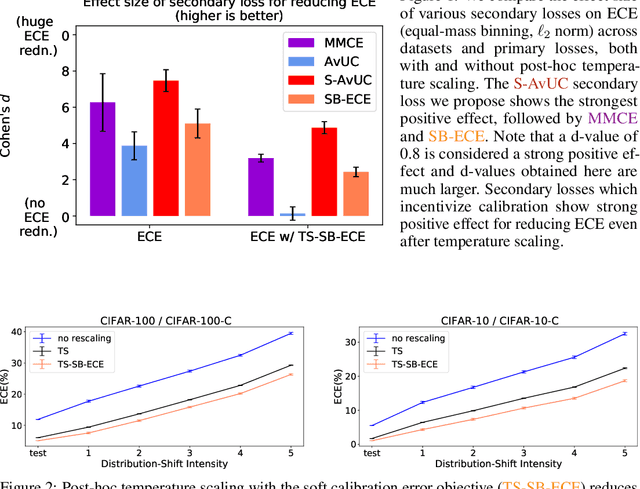
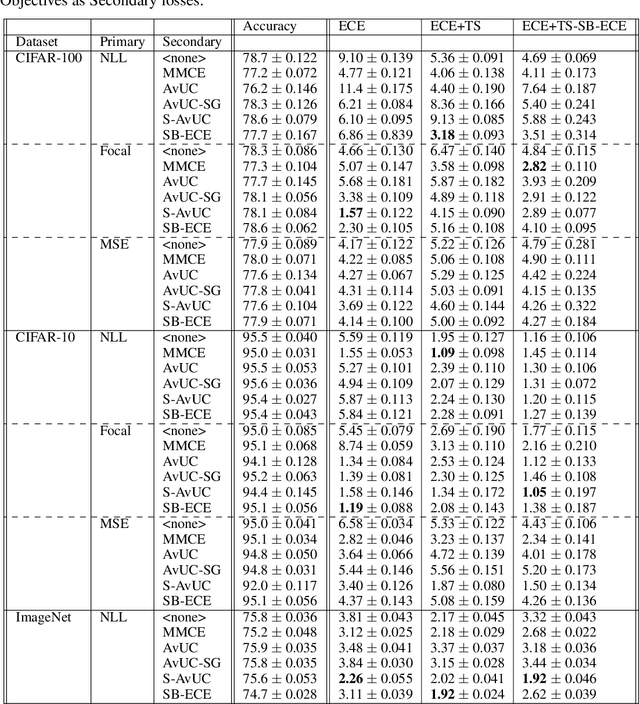
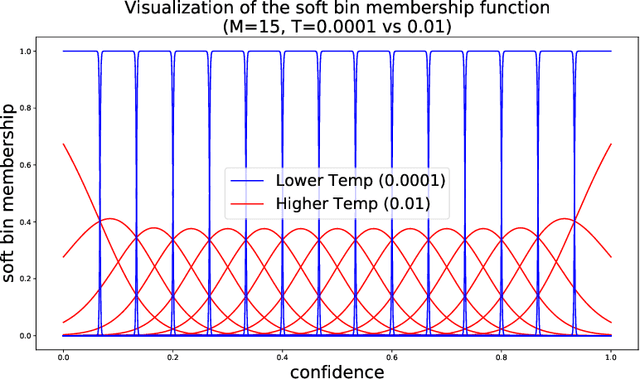
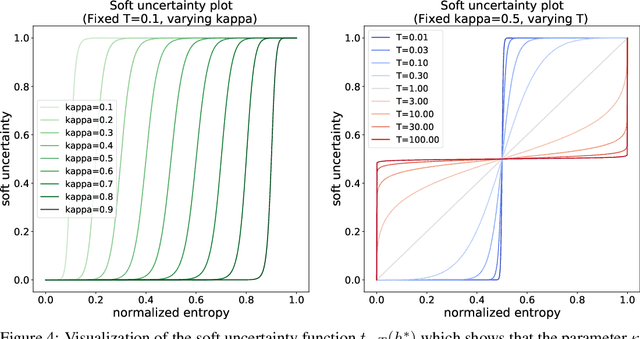
Abstract:Optimal decision making requires that classifiers produce uncertainty estimates consistent with their empirical accuracy. However, deep neural networks are often under- or over-confident in their predictions. Consequently, methods have been developed to improve the calibration of their predictive uncertainty both during training and post-hoc. In this work, we propose differentiable losses to improve calibration based on a soft (continuous) version of the binning operation underlying popular calibration-error estimators. When incorporated into training, these soft calibration losses achieve state-of-the-art single-model ECE across multiple datasets with less than 1% decrease in accuracy. For instance, we observe an 82% reduction in ECE (70% relative to the post-hoc rescaled ECE) in exchange for a 0.7% relative decrease in accuracy relative to the cross entropy baseline on CIFAR-100. When incorporated post-training, the soft-binning-based calibration error objective improves upon temperature scaling, a popular recalibration method. Overall, experiments across losses and datasets demonstrate that using calibration-sensitive procedures yield better uncertainty estimates under dataset shift than the standard practice of using a cross entropy loss and post-hoc recalibration methods.
Mitigating bias in calibration error estimation
Dec 15, 2020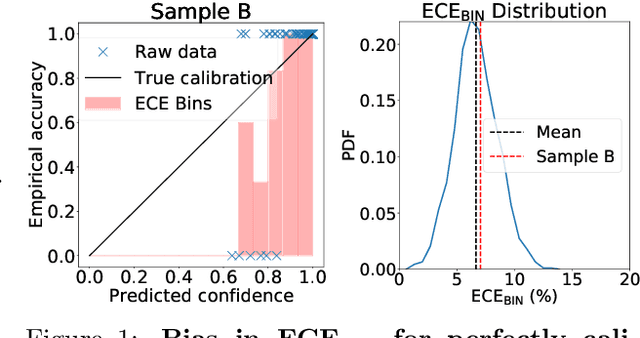
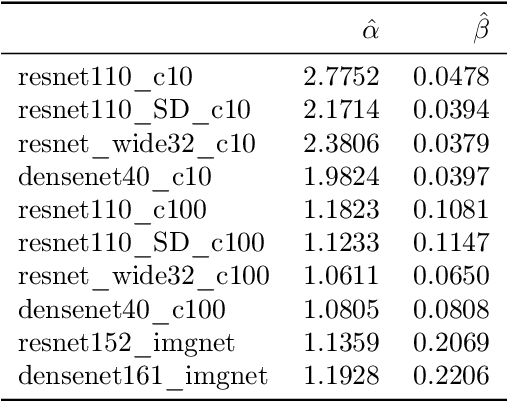

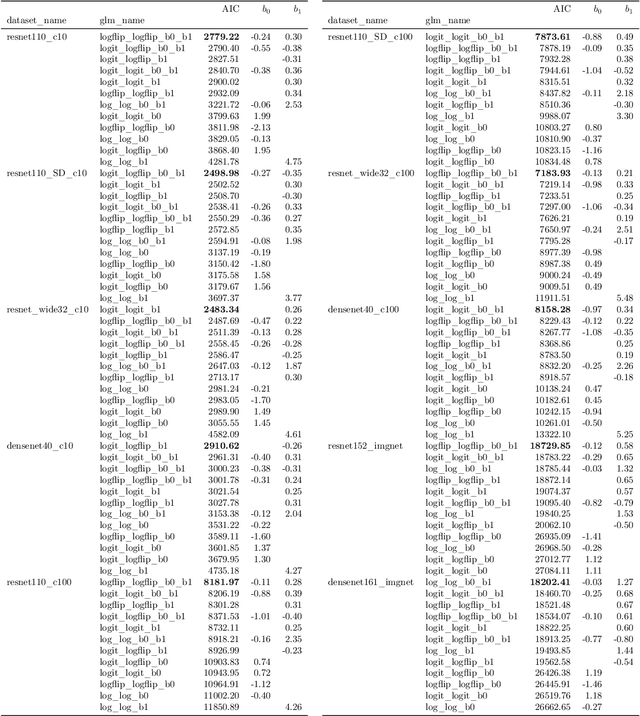
Abstract:Building reliable machine learning systems requires that we correctly understand their level of confidence. Calibration focuses on measuring the degree of accuracy in a model's confidence and most research in calibration focuses on techniques to improve an empirical estimate of calibration error, ECE_bin. Using simulation, we show that ECE_bin can systematically underestimate or overestimate the true calibration error depending on the nature of model miscalibration, the size of the evaluation data set, and the number of bins. Critically, ECE_bin is more strongly biased for perfectly calibrated models. We propose a simple alternative calibration error metric, ECE_sweep, in which the number of bins is chosen to be as large as possible while preserving monotonicity in the calibration function. Evaluating our measure on distributions fit to neural network confidence scores on CIFAR-10, CIFAR-100, and ImageNet, we show that ECE_sweep produces a less biased estimator of calibration error and therefore should be used by any researcher wishing to evaluate the calibration of models trained on similar datasets.
 Add to Chrome
Add to Chrome Add to Firefox
Add to Firefox Add to Edge
Add to Edge